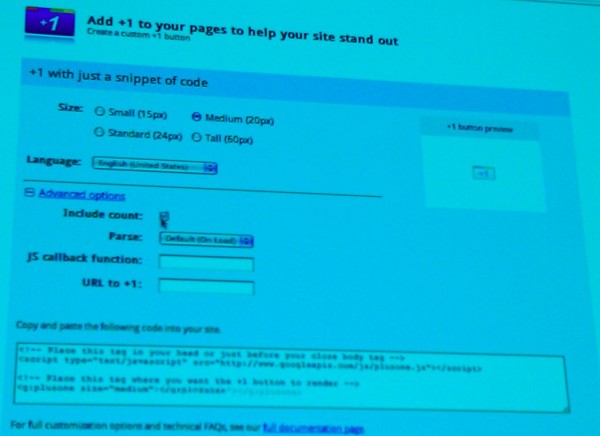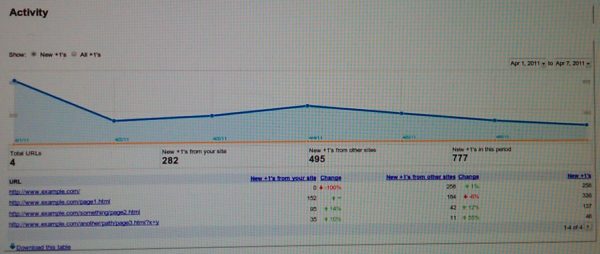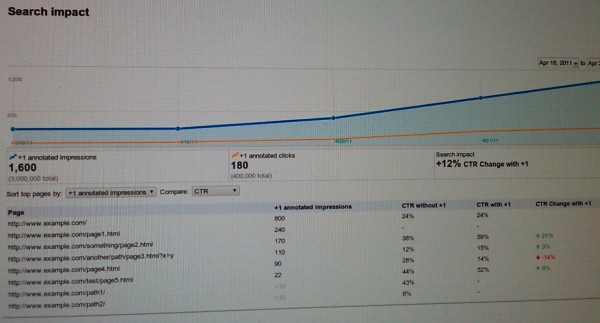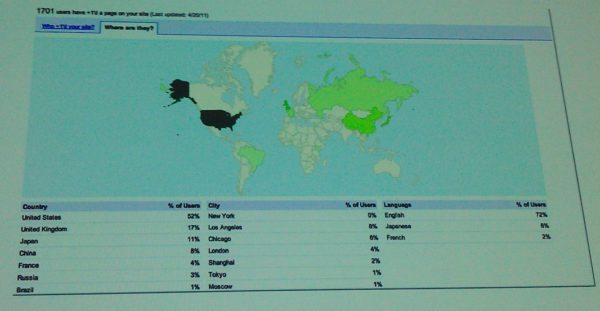Just Weeks Away, A Preview Of The Google +1 Button For Websites
Today at the Google I/O conference, Google gave developers a preview of how the Google +1 button can be inserted into websites, some of the stats it will offer and said it would be available “in a matter of weeks.” The button will have a counter display similar to how other buttons from Facebook and […]
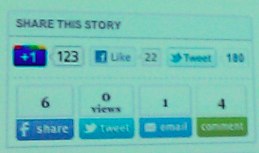
The button will have a counter display similar to how other buttons from Facebook and Twitter work. The image over on the right is a mockup of how it might look at the Huffington Post, as created by Google.
+1 Button Comes In “Weeks”
No, the Huffington Post doesn’t yet have this button. No one does yet, Google said. But Timothy Jordan, the developer advocate from Google who lead the developer session, said it’s only weeks away.
Button Generation Form
Installation for most people will be done by using a simple code generator that allows setting of size, whether to include a count and other options. Here’s a prototype of it now (it will likely change a bit):
The “JS callback function” will allow developers to have the button do perform post-click actions that program themselves, such as have a different visual display or track special analytics.
Another post-click example that Google gave: if you have your own login system, you can use this to create your own local record of what has been +1’d (that’s how Google says it writes the act of +1’ing something) on the site.
The buttons are available in a range of sizes:
After certain thresholds have been met (enough +1 activity for a particular site), you’ll be able to view anonymous data.
The reason for the threshold is to protect privacy (if you only had a couple of +1s and reported data, potentially, a publisher could guess at who might have used the button).
Activity Stats
Here’s an example of how the activity stats screen might look, showing things such as total number of +1s that have happened or happened off your own site (such as through search):
Google stressed not to read too much into the slide above or the ones that follow, because exact features might change. And, if there’s data you want, please leave a comment — they’ll be looking.
With the search activity, the idea is to show how the activity looks for “annotated” versus “non-annotated” links. Annotated means that there’s a result that has +1 activity associated with it in the search results, not that it has been annotated with an actual comment.
Here’s a prototype report:
Who has +1’d your site will also be reported in aggregate, such as by age and sex:
And location:
These reports will be available through Google Webmaster Central, when the buttons are released. So, if you haven’t yet registered your site, there’s another reason to do so.
Want to be notified when the +1 buttons are ready? Use Google’s form here. Want to understand more about the +1 button, especially in how it works now as part of search? See our articles below.
Related Articles
Opinions expressed in this article are those of the guest author and not necessarily Search Engine Land. Staff authors are listed here.
Related stories
New on Search Engine Land
